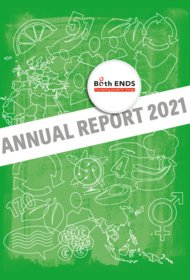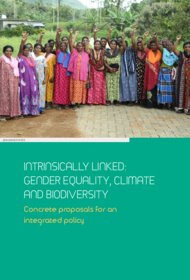Minister Ploumen regrets situation Barro Blanco
The Dutch Minister of Foreign Trade and Development regrets the fact that part of the Ngäbe-Buglé tribe is unhappy with the construction of the Barro Blanco dam in the river Tabasara in Panama. Ploumen said this in reply to parliamentary questions filed by Jasper van Dijk (SP). The Netherlands is involved in the construction of this controversial dam because of the loan provided by the Dutch development bank FMO. The minister does not have the intention of forcing the FMO to withdraw the loan, even though the basic human right of "free, prior and informed consent’ has been violated. A part of the Ngäbe tribe has not been informed before the plans were carried out. Anouk Franck of Both ENDS looks at the impact of the FMO loans.
BE: What is the current situation in the Barro Blanco?
Anouk Franck:
“The situation is frightening. Some Ngäbe occupy the land around the river to prevent the continuation of the construction. There is a constant threat of violent intervention by security forces and the police. In the past, such confrontations have caused deaths and injuries. Police have installed huge lamps that prevent the occupants from sleeping at night. We have no idea how this will end. This situation has been going on for weeks now.
BE: Will the answers of minister Ploumen stop the construction of the dam?
Anouk Franck:
No, but at least Minister Ploumen is aware of the problem. She acknowledges that a part of the locals do not feel represented in the public consultation process about the dam, but she does not draw conclusions from this. The FMO recognises this as well, but relies too much on the information provided by its client Genisa, even though it is very clear that there is absolutely no trust between the affected residents and Genisa. We have seen no evidence of Genisa undertaking any actions to arrive at a peaceful solution and since we are not allowed to look at Genisa’s plan of action, it is not possible for us to assess if FMO’s confidence is justified or not.”
BE: What does this mean for the FMO?
Anouk Franck:
FMO claims to follow international standards (like those of the commercial branch of the World Bank, the IFC). Then how is it possible that local residents have been involved so little that they have been demonstrating for years already ? The United Nations even had to intervene to facilitate a dialogue. Still, according to the Ngäbe, around 270 people will forced to move. Currently, the dam is almost finished, which means that they will be evicted from their land and their homes because no agreement has been reached. I first spoke to the FMO about this issue three years ago, before they even decided to finance the dam. All this time, the FMO has not acknowledged the severity of the problems and the responsibility that are bearing as funder of the project.
Previous news items:
18 Februari 2014: Situation tense for indigenous Ngäbe people near Barro Blanco in Panama
14 Februari 2014: Filing a complaint with the FMO
19 June 2013: Will UN Rapporteur Anaya investigate Barro Blanco dam in Panama?
Read more about this subject
-
Dossier
Indigenous communities threatened by Barro Blanco dam in Panama
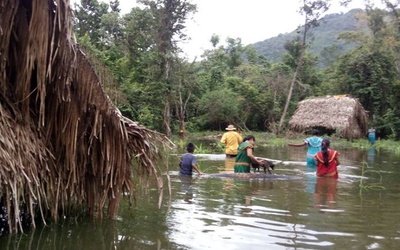
The Barro Blanco dam project in Panama, which has Dutch financial support, is causing indigenous lands to disappear under water. Both ENDS is working to protect the rights of indigenous communities living near the dam.
-
News / 13 December 2023
Response from Both ENDS and OxfamNovib to new FMO climate fund
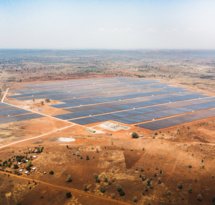
Both ENDS and Oxfam Novib welcome the new SDG Loan Fund launched by FMO. The fund aims to invest more than a billion euros in loans to small and medium-sized enterprises in low- and middle-income countries, in the energy, inclusive financial services and sustainable agriculture sectors. At the same time, both organisations are concerned about the impact of money from the fund on normal people in future recipient countries.
-
News / 6 November 2023
Response to FMO investments in Nicaragua
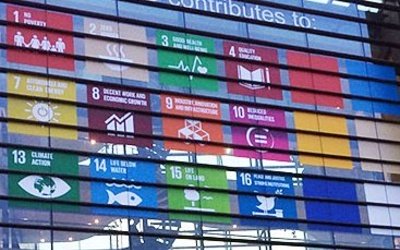
On 27 October, RTL Nieuws reported that the Steungroep Nicaragua considers the millions of euros that the Dutch development bank FMO is investing in Nicaragua irresponsible. When asked, FMO stated that 'it had to continue to support its entrepreneurs in difficult times'. Both ENDS believes that the choice to continue to invest in Nicaragua brings substantial risks, which FMO does not take sufficiently into account when deciding on financing. Previous FMO investments have caused harm to people and the environment and, in some cases, even led to violence – with, as its lowest point, the murder of Berta Cáceres in Honduras in 2016.
-
Publication / 15 March 2023
-
Press release / 5 December 2022
Groups react with dismay to FMO’s position statement on Financial Intermediaries, pointing to outstanding human rights and climate concerns
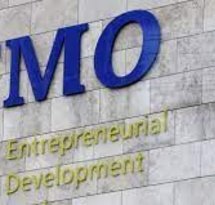
On October 13th 2022, FMO published the final version of its Position Statement on Impact and ESG for Financial Intermediaries (FI statement). As civil society groups which have engaged with FMO on this topic for more than four years, we are extremely disappointed with the result. In the statement, FMO does not show sufficient commitment to ensuring its investments into financial intermediaries – which represent the bank's largest investment sector* – do not violate human rights or contribute to environmental harms.
-
Dossier
Finance for agroecology
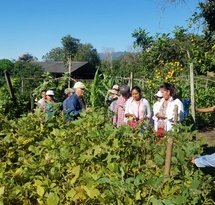
The lion's share of public budgets for climate, agriculture and development still goes to conventional agroindustrial projects that contribute to the current climate, food and biodiversity crises. Both ENDS and our partners are calling for a transition to agroecological practices that are people- and environment-friendly.
-
Blog / 12 October 2022
Op-ed in Trouw: "Give more money to local sustainable food producers in developing countries"
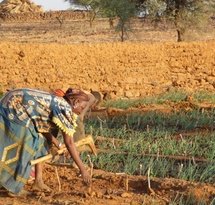
The Dutch government and Dutch businesses spend a lot of money on food production in developing countries. But, according to Karin van Boxtel, policy officer at Both ENDS, far too little of that money finds its way to sustainable, nature-inclusive producers.
-
Press release / 5 October 2022
Independent research confirms FMO’s responsibility for destruction caused by Barro Blanco dam, recommends compensation
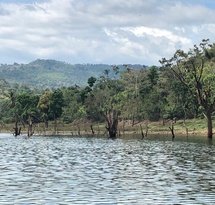
Utrecht, 5 October 2022 - Dutch development bank FMO bears responsibility for the destruction of livelihoods, economic losses and environmental damage caused by the construction of the Barro Blanco dam in Panama, according to a report by the bank's Independent Complaints Mechanism (ICM). Indigenous communities affected by the dam are pleased that their complaints have been confirmed and reiterate their call for apologies and compensation.
-
Publication / 23 August 2022
-
News / 22 August 2022
Complaint to development banks about the Nachtigal dam in Cameroon
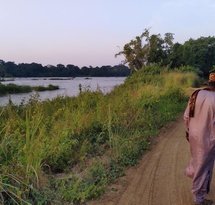
Both ENDS partner IFI Synergy has filed a complaint to the World Bank on behalf of local inhabitants about the Nachtigal dam in Cameroon. The dam is causing considerable problems for local communities and local people feel that the compensation they receive is inadequate. They also feel that they were insufficiently informed and consulted before construction of the dam started.
-
News / 28 June 2022
In solidarity with daughter of murdered Indigenous leader
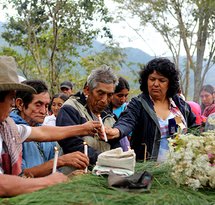
On Tuesday 28 June, the Honduran organisation COPINH and the Global Justice Association filed a complaint with the public prosecutor in the Netherlands against Dutch development bank FMO. For COPINH, this is part of their continued efforts to bring to justice those involved in the murder of their leader Berta Cáceres. FMO financed the Agua Zarca project in Honduras in 2014. The new complaint is based on documents indicating that FMO's money has been used improperly.
-
Dossier
Uganda’s Energy Future
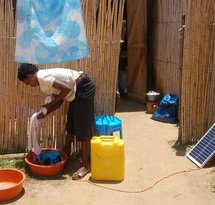
Despite the existence of many hydropower dams, foreign investments and large government spending on energy, and new plans for hydropower, oil and gas projects, the vast majority of rural Uganda still remains without electricity. Together with our local partners we are striving towards a sustainable energy strategy for Uganda that starts from the needs and wishes of local communities.
-
News / 10 June 2022
FMO fails to meet best practices on financial intermediaries
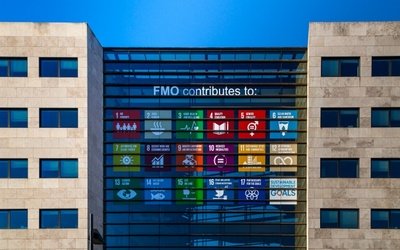
In a new Position Statement on Financial Intermediary (FI) Lending, Dutch development bank FMO argues for limited responsibility over the outcomes investments that are channeled through commercial banks, investment funds, and other financial intermediaries, representing by far the bigger sector of its portfolio. In doing so, FMO is undermining its development mission, including the protection of human rights and addressing the climate crisis. FMO intends to delegate these key responsibilities to its FI clients only, falling short of best practices of peer financial institutions. In a joint submission prepared by Both ENDS, Oxfam Novib, Recourse and SOMO, we argue that FMO can do much more to ensure the protection of human rights, the environment, and to measure the development impact of its indirect investments.
-
Letter / 10 June 2022
Joint submission on FMO’s Position Statement on Financial Intermediaries
Both ENDS, SOMO, Oxfam Novib and Recourse sent in a submission to FMO's public consultation on its Position Statement on Financial Intermediaries. In this position statement, FMO only takes limited responsibility for the consequences of its investments through so-called financial intermediaries. We call upon FMO to publish a position statement that focuses on protecting human rights and the environment and take full responsibility for this.
-
Press release / 19 May 2022
122 CSOs warn signatory countries they have only six months left to meet COP26 commitment to end international public finance for all fossil fuels
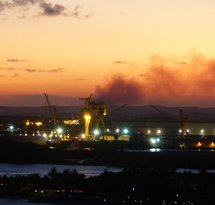
Today, 122 civil society groups are releasing letters to eleven government signatories to the Glasgow Statement on International Public Support for the Clean Energy Transition, laying out the actions they must take as soon as possible to meet their commitment. In this joint statement at COP26, 35 countries and 5 public finance institutions committed to end their international public finance for 'unabated' fossil fuels by the end of 2022, and instead prioritise their "support fully towards the clean energy transition."
-
News / 23 December 2021
2022 is the year for FMO to make good on its promises and provide financial support only to sustainable development
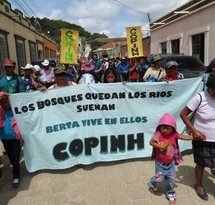
2021 was a turbulent year for Dutch development bank FMO, to say the least. The bank has been under fire for many years for investments linked to human rights violations and suspected corruption. But in the past year, the Dutch press and media have reported on one new development after the other in ongoing cases involving FMO. Below we give a short summary of these cases and call on FMO to make the promised improvements in 2022.
-
News / 8 November 2021
Both ENDS and SOMO condemn violence against Indigenous community near the Barro Blanco dam in Panama
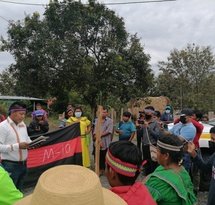
Members of the Indigenous Ngäbe Buglé people were brutally attacked by Panamanian police on Friday 29 October 2021 from a parcel of private land near the FMO-financed Barro Blanco hydroelectric dam. The victims, all members of the anti-dam movement M22, had peacefully occupied the land after their protest camp got dismantled in July this year.
-
Publication / 2 November 2021
-
News / 27 July 2021
In conversation with the Ngäbe-Bugle community in Panama, after five years of Barro Blanco-dam
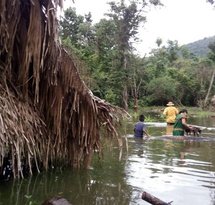
In April 2021, the Dutch development bank FMO announced that it is no longer involved in the Barro Blanco project, a controversial dam in Panama. GENISA, the Panamanian company that built the dam, unexpectedly paid off the multi-million dollar loan early. The question is to what extent, now that the bank is no longer actively financing the project, FMO can still be held responsible for the damage and suffering that was caused when this was still the case.
-
News / 23 July 2021
Dutch development bank FMO's funding for Agua Zarca project possibly linked to malpractices
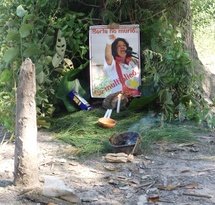
The million-dollar loan that the Dutch development bank FMO provided to project developers of Honduran company DESA for the construction of the controversial Agua Zarca dam project in Honduras, may be related to gross corruption and malpractice. This is concluded in an article published today in the Dutch news paper Financieel Dagblad, based on information provided by COPINH, the indigenous organisation that has been opposing the construction of the dam for years. Several members of the organisation, including its leader Berta Cáceres, were murdered. DESA director David Castillo has recently been convicted of being involved in the assassination of Cáceres in 2016.







